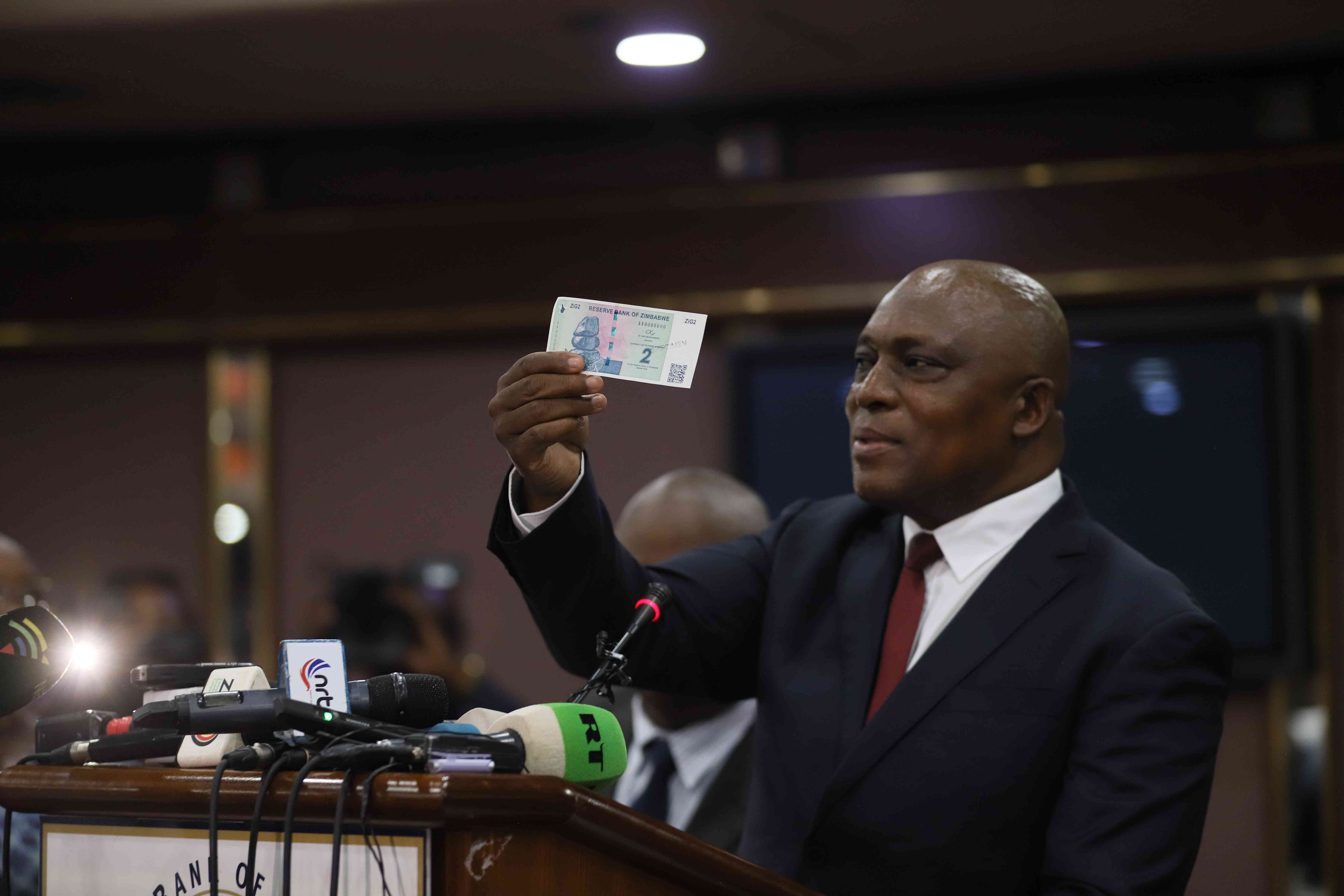
BUSINESS executives yesterday gave Reserve Bank of Zimbabwe (RBZ) governor John Mushayavanhu a rude awakening after a snap survey which showed that they were not ready to support the new currency.
Instead, executives want Mushayavanhu to adopt a strict monetary policy stance to win the hearts of business.
Mushayavanhu last week introduced the Zimbabwe Gold (ZiG) which will replace the Zimbabwe dollar. ZiG notes and coins will be introduced on April 30.
According to the central bank, ZiG will be backed by the country’s gold reserves, foreign currency reserves and precious metals worth US$285 million.
At a Monetary Policy review meeting yesterday, Zimbabwe National Chamber of Commerce president Mike Kamungeremu conducted a snap survey on whether business would support Mushayavanhu’s measures.
The meeting, organised by the Confederation of Zimbabwe Industries, was attended by most of the business membership organisations.
He asked attendees to raise their hands if “business would support the governor and the new currency”.
However, about 90% of the 400 in attendance kept their hands down.
- RBZ blocks Harare US dollar charges
- Industry cries foul over new export surrender requirements
- One stitch in time saves nine
- Banks keep NPLs in safe territory
Keep Reading
The ZNCC boss then asked “who hopes the currency will work” to which most of the attendees raised their hands.
Some of the business sector represented at the conference include farmers, manufacturing, finance, corporates, miners and energy.
AFC Commercial Bank business strategy head Joseph Mverecha said the environment did not change because there was a new currency.
However, he added that the government had a huge chance to convince the masses that this time around the local currency would perform differently as there were efforts to create demand for it.
“We must ensure that we have a single digit growth for ZiG and authorities need to walk the talk and implement the things that they said they will do,” Mverecha said.
“We have a very big chance with ZiG given how it is structured but if authorities do not walk the talk, we all know the results. So, really, it’s not about a new currency but having authorities deliver on their promises and assure the public that it will work.”
Mverecha said there was need for enhanced liquidity management between the Ministry of Finance and the central bank adding that the increase in money supply should be in sync with the increase in reserves.
“In the rural areas, people might not know so much about the technicalities around the ZiG but the moment we print more money, they will know very quickly, and we lose the drift to the public,” he said.
“We need to create drift of congruence that allows people to accept the ZiG and the private sector should also accept the ZiG as a functional currency. However, government should also on the other hand continue to do things they say they will do without wavering.”
Industrialist Jimmy Psillos said the first test on ZiG was going to come when the banks finish setting up the platforms and the ZiG was up and running.
He said the government needed to ensure that the ZiG did not gain strength for a few weeks just for show, but rather win public confidence and make financial markets work again.
“Base money doubled in Q1 [first quarter] 2024 and is 1 000% since December 2022. Despite assurances of a tight monetary policy and the taking over of surrender requirements by Treasury, how will we convince the market that things will be different?”
As part of efforts to increase demand for ZiG, businesses want taxes and fuel to be paid in strictly ZiG. Government has said this will not happen overnight.
Mushayavanhu last week declared that ZiG was here to stay taunting those that want to bet against it that “it’s game on”.







